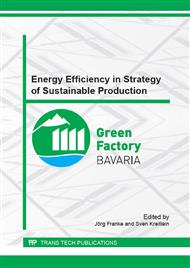p.196
p.205
p.213
p.223
p.231
p.241
p.249
p.257
p.265
Evaluation of Model Based Predictive Control Algorithms for Fractional Horse Power Drives
Abstract:
Model based predictive control is a new promising control method in the field of powerelectronics and electrical drives. The main advantages of MPC are simplicity and intuitiveness of thecontrol method. Constraints and nonlinearities of the system can easily be included, which makes thelinearisation of the system unnecessary. By using MPC it is possible to avoid the cascaded structureof common linear control methods and to gain a fast dynamic performance. A disadvantage is theneed to calculate the optimal actuating variable multiple times in every single sampling cycle leadsto a huge requirement of computational power. So far the computational requirement was the greatestbarrier for the practical application of model based predictive control in the field of power electronicsand electrical drive systems. In addition the small time constants of fractional horse power drivescomplicate the application of predictive control algorithms. In this paper, the feasibility of hardwareimplementation of a cost function based Finite Control Set MPC (FCS-MPC) algorithm for directspeed control of fractional horse power drives is explored. The cost function allows to address variouscontrol goals like dynamics of transitions and energy efficiency – an advantage linear conventionalcontrol methods cannot offer. Hitherto there are very few publications for direct predictive speed. Thepresented approach for direct predictive speed control includes a finite number of possible switchingstates of the converter. This considers the discrete nature of power converters and avoids the need formodulation. The basic principle of the control method is presented and the performance is demonstratedby simulations and experimental results for an industrial brushed type DC-motor.
Info:
Periodical:
Pages:
231-240
DOI:
Citation:
Online since:
November 2015
Authors:
Price:
Сopyright:
© 2015 Trans Tech Publications Ltd. All Rights Reserved
Share:
Citation:


